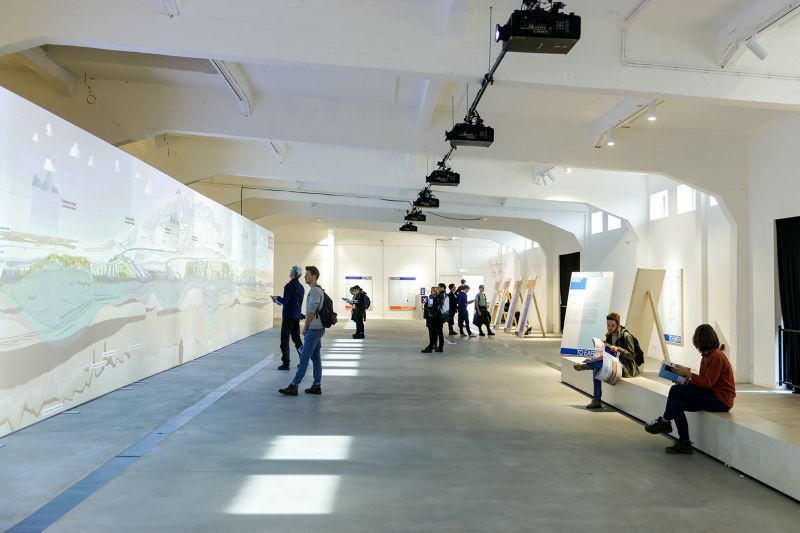Please note that, given the pandemic, IABR follows the guidelines of the Dutch Health Authority. This way, we can ensure that there are never too many people present at the same time and that every visit is a safe visit. Therefore, visitors have to reserve times slots, which you can do by clicking here

DOWN TO EARTH: DROUGHT IN THE DELTA
image: Aad Hoogendoorn
BUILDING BLOCKS FOR A NEW FRESHWATER STRATEGY
The exhibition DOWN TO EARTH: DROUGHT IN THE DELTA, curated by George Brugmans, picks up where the last biennale left off in 2018: in our own delta. Almost every day this summer, we were told that it is in danger of drying up. Water companies warned us not to water our gardens, wash our cars or fill our swimming pools. At other times, severe downpours caused the streets to flood and there was too much water.
We live in a delta where climate change is now confronting us with new problems. For hundreds of years, the Dutch have been making ever smarter arrangements to drain water as quickly and efficiently as possible with an eye to water safety and agricultural productivity. But how to store excess water so that it can be used in times of drought is an unexpected quandary. After three dry summers in a row, it is no longer self-evident that we, like no other people, know how to handle water.
The results of the research by design done by the IABR–Atelier Drought in the Delta are central to the first exhibition of DOWN TO EARTH. They are visualized by means of an animation of a cross section of the Dutch Delta. Looking in the direction of Germany, France and Belgium, upstream along the Rhine, Meuse and Scheldt, we see the Alps in the distance. In about seven minutes, Studio Marco Vermeulen en Tungsten Studio demonstrate how our delta is currently functioning, what problems have arisen due to climate change and what possible building blocks for a new freshwater strategy in conjunction with other transition challenges there are.
DOWN TO EARTH: DROUGHT IN THE DELTA will be open to the public from 19 September to 1 November, from 11am until 17pm - closed on Mondays.
For all visitors information, click here